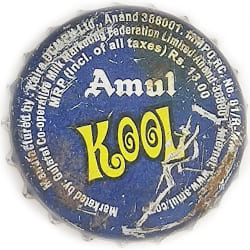Amul: Revolutionizing India’s Dairy Industry

Introduction
Amul, a brand synonymous with dairy products in India, has played a pivotal role in transforming the country’s dairy industry since its inception in 1946. As a cooperative backed by millions of farmers, Amul not only supports local economies but also provides high-quality dairy products to consumers across India. This article explores Amul’s impact on the dairy sector, the cooperative model it employs, and its relevance in contemporary times.
Amul’s Journey and Achievements
Born out of the need to free dairy farmers from exploitation by middlemen, the Anand Milk Union Limited (AMUL) was established in Gujarat under the leadership of Dr. Verghese Kurien, known as the ‘father of the White Revolution’ in India. Amul’s cooperative model has empowered over 3.6 million dairy farmers, providing them with better prices for their milk and dairy products. Today, Amul is one of the largest dairy cooperatives in the world, with a turnover exceeding INR 53,000 crore (approximately USD 7 billion).
Product Range and Innovations
Amul’s product range includes milk, butter, cheese, paneer, ice cream, and a variety of flavored milk and yogurts. The brand has been at the forefront of innovation, introducing products like Amul Butter, which became a household name, and Amul Ice Cream, which caters to diverse tastes with its unique flavors. Furthermore, Amul has successfully ventured into international markets, exporting products to over 50 countries, reinforcing its status as a global player.
Amul’s Contribution to the Economy
Amul’s cooperative model not only provides a source of income for rural farmers but also bolsters the Indian economy by generating employment and supporting ancillary industries. By ensuring fair prices for farmers, Amul contributes significantly to rural development and poverty alleviation. Additionally, during the COVID-19 pandemic, Amul played a crucial role by ensuring the supply of essential dairy products, thus maintaining food security during a challenging time.
Conclusion
The significance of Amul extends beyond just dairy products; it represents an ideal model of cooperative business that promotes social equity and economic growth. The organization’s commitment to quality, innovation, and farmer welfare continues to inspire new generations in the dairy sector. As India moves towards embracing more sustainable agricultural practices, Amul’s impact will likely grow even more, facilitating both economic stability and food security for millions. Thus, Amul remains vital not only to India’s dairy industry but also to its agricultural landscape as a whole.








